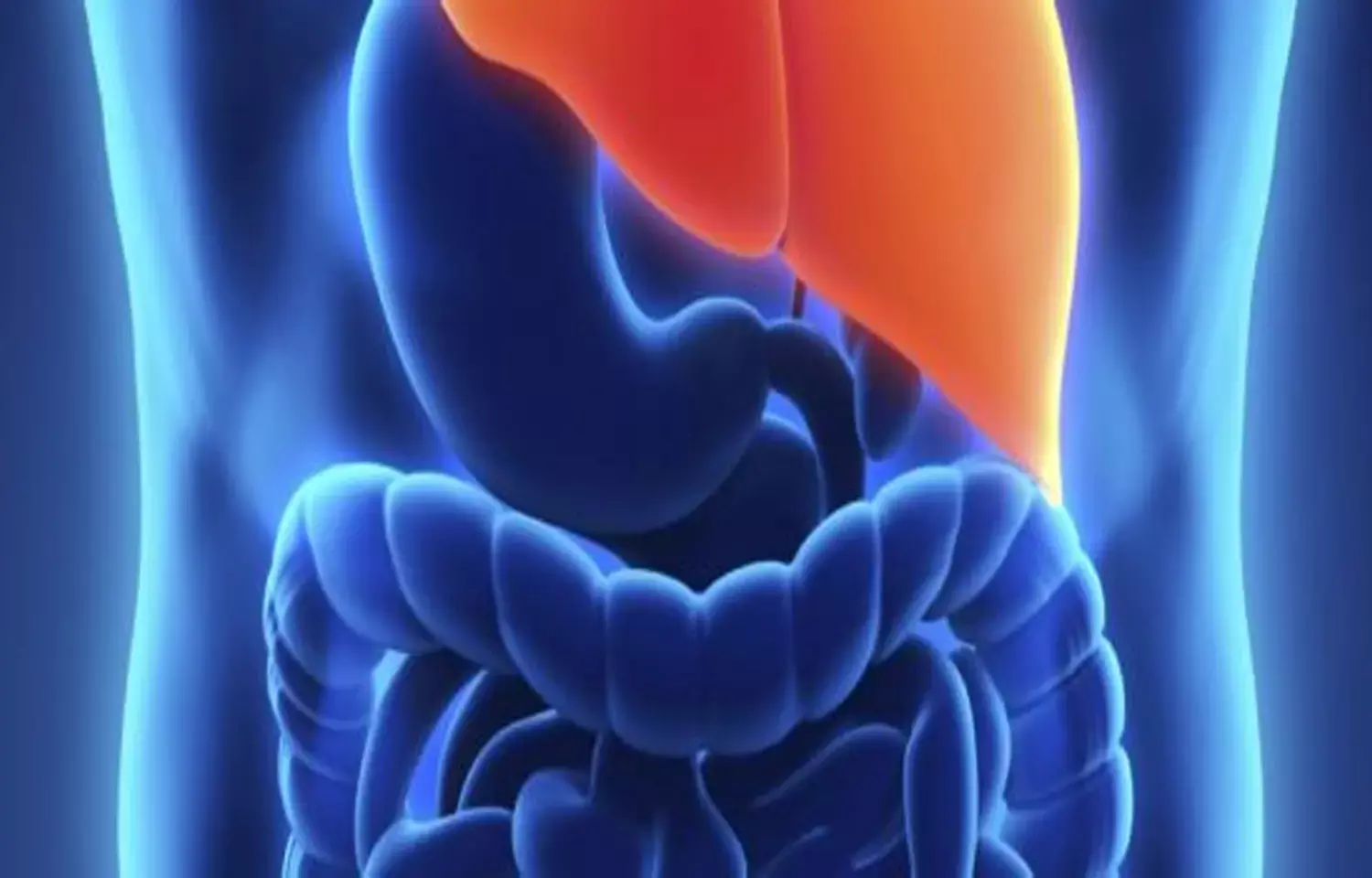- Home
- Medical news & Guidelines
- Anesthesiology
- Cardiology and CTVS
- Critical Care
- Dentistry
- Dermatology
- Diabetes and Endocrinology
- ENT
- Gastroenterology
- Medicine
- Nephrology
- Neurology
- Obstretics-Gynaecology
- Oncology
- Ophthalmology
- Orthopaedics
- Pediatrics-Neonatology
- Psychiatry
- Pulmonology
- Radiology
- Surgery
- Urology
- Laboratory Medicine
- Diet
- Nursing
- Paramedical
- Physiotherapy
- Health news
- Fact Check
- Bone Health Fact Check
- Brain Health Fact Check
- Cancer Related Fact Check
- Child Care Fact Check
- Dental and oral health fact check
- Diabetes and metabolic health fact check
- Diet and Nutrition Fact Check
- Eye and ENT Care Fact Check
- Fitness fact check
- Gut health fact check
- Heart health fact check
- Kidney health fact check
- Medical education fact check
- Men's health fact check
- Respiratory fact check
- Skin and hair care fact check
- Vaccine and Immunization fact check
- Women's health fact check
- AYUSH
- State News
- Andaman and Nicobar Islands
- Andhra Pradesh
- Arunachal Pradesh
- Assam
- Bihar
- Chandigarh
- Chattisgarh
- Dadra and Nagar Haveli
- Daman and Diu
- Delhi
- Goa
- Gujarat
- Haryana
- Himachal Pradesh
- Jammu & Kashmir
- Jharkhand
- Karnataka
- Kerala
- Ladakh
- Lakshadweep
- Madhya Pradesh
- Maharashtra
- Manipur
- Meghalaya
- Mizoram
- Nagaland
- Odisha
- Puducherry
- Punjab
- Rajasthan
- Sikkim
- Tamil Nadu
- Telangana
- Tripura
- Uttar Pradesh
- Uttrakhand
- West Bengal
- Medical Education
- Industry
Phospholipid curcumin Meriva Promising in Treatment of Nonalcoholic Steatohepatitis and Kidney Disease: Study

Researchers recently have found that Meriva, a phospholipid formulation of curcumin, is both safe and effective in improving liver histology, kidney disease, and metabolic profiles in patients with nonalcoholic steatohepatitis (NASH). This study was published in the journal Hepatology by Musso G. and colleagues. This study could lead to improved treatment options for NASH patients, who face increased risks of liver-related and kidney morbidity.
Nonalcoholic steatohepatitis (NASH) is a progressive liver disease that poses serious health risks, including liver fibrosis and chronic kidney disease (CKD). Traditional treatments have limited efficacy, prompting the search for alternative therapies. Meriva®, known for its enhanced systemic absorption and delivery of curcumin, has shown potential anti-inflammatory and metabolic benefits, making it a candidate for NASH treatment.
In a double-blind trial, 52 patients with biopsy-confirmed NASH were randomized to receive either 2 grams of Meriva® per day or a placebo for 72 weeks. The study's primary endpoint was the resolution of NASH without worsening fibrosis. Secondary endpoints included improvement in liver fibrosis, regression of significant fibrosis and CKD, and enhancements in renal, glucose, lipid, and inflammatory parameters. The study also explored Meriva®'s effect on hepatic activation of Nuclear Factor (NF)-kB, a pro-inflammatory transcription factor targeted by curcumin.
Fifty-one patients completed the trial, with significant differences observed between the Meriva® and placebo groups:
• 62% of patients on Meriva® achieved NASH resolution compared to 12% on placebo (RR=5.33, 95% CI=1.76–12.13; p=0.003).
• 50% of patients on Meriva® showed at least a one-stage improvement in liver fibrosis, versus 8% on placebo (RR=6.50, 95% CI=1.63-21.20; p=0.008).
• 42% of Meriva® patients experienced regression compared to none on placebo (RR=18.01, 95% CI=1.43-36.07; p=0.02).
• 50% of patients on Meriva® saw regression in CKD versus none on placebo (RR=10.71, 95% CI=1.94-17.99; p=0.004).
• Meriva® significantly improved various metabolic and inflammatory markers:
• eGFR: Improved by +3.59 mL/min/1.73 m²/year (p=0.009).
• Fasting Glucose: Decreased by 17 mg/dL (95% CI=−22, −12).
• HbA1c: Reduced by 0.62% (95% CI=−0.87%, −0.37%).
• LDL-C: Lowered by 39 mg/dL (95% CI=−45, −33).
• Triglycerides: Decreased by 36 mg/dL (95% CI=−46, −26).
• HDL-C: Increased by 10 mg/dL (95% CI=+8, +11).
• The inhibition of hepatic NF-kB activity was a predictor of NASH resolution (AUC=0.90, 95% CI=0.84-0.95) and fibrosis improvement (AUC=0.89, 95% CI=0.82-0.96).
• Adverse events were rare, mild, and evenly distributed between the Meriva® and placebo groups, confirming the safety and tolerability of Meriva® over the 72-week period.
This study demonstrates that Meriva® is a promising therapeutic option for NASH patients, providing significant benefits in liver histology, kidney disease, and metabolic health, likely through the inhibition of NF-kB. Further research and larger trials are warranted to confirm these findings and potentially expand the use of Meriva® in clinical practice.
Reference:
Musso, G., Pinach, S., Mariano, F., Saba, F., De Michieli, F., Framarin, L., Berrutti, M., Paschetta, E., Parente, R., Lizet Castillo, Y., Leone, N., Castellino, F., Cassader, M., & Gambino, R. (2024). Effect of phospholipid curcumin Meriva® on liver histology and kidney disease in nonalcoholic steatohepatitis a randomized, double-blind, placebo-controlled trial. Hepatology (Baltimore, Md.), 10.1097/HEP.0000000000000937. https://doi.org/10.1097/hep.0000000000000937
Dr Riya Dave has completed dentistry from Gujarat University in 2022. She is a dentist and accomplished medical and scientific writer known for her commitment to bridging the gap between clinical expertise and accessible healthcare information. She has been actively involved in writing blogs related to health and wellness.
Dr Kamal Kant Kohli-MBBS, DTCD- a chest specialist with more than 30 years of practice and a flair for writing clinical articles, Dr Kamal Kant Kohli joined Medical Dialogues as a Chief Editor of Medical News. Besides writing articles, as an editor, he proofreads and verifies all the medical content published on Medical Dialogues including those coming from journals, studies,medical conferences,guidelines etc. Email: drkohli@medicaldialogues.in. Contact no. 011-43720751


